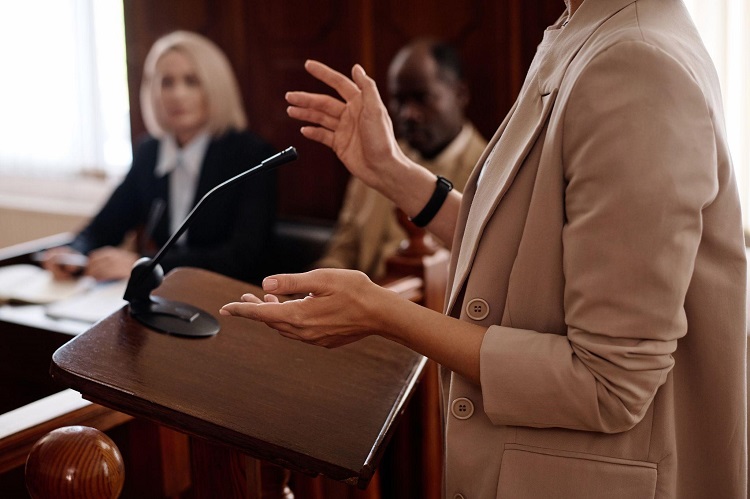When a family loses a loved one due to another’s negligence or misconduct, a wrongful death lawsuit provides a path for seeking justice and financial support. However, proving liability and accurately assessing damages in wrongful death cases can be complex. Expert witnesses play an important part in these cases by providing the technical, medical, and economic insights needed to substantiate the claim. They help translate specialized knowledge into compelling testimony, strengthening the family’s case and supporting their pursuit of fair compensation.
If you are considering filing a wrongful death lawsuit in Michigan, working with a Grand Rapids wrongful death lawyer who can secure credible expert witnesses can make a substantial difference in your case outcome. This article explores the vital roles that expert witnesses play in wrongful death litigation, highlighting how they contribute to proving negligence, establishing causation, and determining the appropriate compensation for surviving family members.
Table of Contents
Types of Expert Witnesses in Wrongful Death Cases
Depending on the specifics of the incident, various expert witnesses may be called upon in wrongful death cases. The following are some of the most common expert witnesses used in wrongful death litigation:
- Medical experts: Often required to establish the cause of death, medical experts analyze medical records, autopsy reports, and the deceased’s medical history to determine how the actions of the defendant contributed to the death.
- Accident reconstruction experts: In car accidents, construction accidents, or falls, accident reconstruction experts recreate the scene to show how the event likely unfolded. They use evidence, physics principles, and technology to illustrate the events leading to the fatality.
- Economic experts: To estimate the financial impact of the death, economic experts assess factors like lost wages, potential future earnings, and benefits. They help the court understand the economic losses the family will incur due to the untimely death of their loved one.
- Mental health experts: These experts may testify to the emotional and psychological impact the loss has had on surviving family members, helping to substantiate claims for non-economic damages like loss of companionship and emotional suffering.
Each expert contributes a unique perspective, adding weight and credibility to the claims presented in court.
Establishing Liability with Expert Witnesses
One of the primary purposes of expert witnesses in wrongful death cases is to help establish liability. In wrongful death litigation, the plaintiff (usually a family member or estate representative) must demonstrate that the defendant’s actions or negligence directly caused the death. Expert witnesses can be instrumental in proving that the defendant’s behavior breached a standard of care or acted negligently.
For example, in medical malpractice cases, a medical expert can clarify the standard of care that a reasonable professional would have provided under similar circumstances and demonstrate how the defendant failed to meet this standard. Similarly, in a fatal car accident case, an accident reconstructionist can analyze road conditions, the vehicle’s speed, and other factors to determine whether reckless or careless driving led to death.
Demonstrating Causation with Expert Testimony
In wrongful death cases, it is not enough to simply prove that a defendant was negligent; it must also be shown that this negligence was the direct cause of death. Expert witnesses establish causation by linking the defendant’s actions to the fatal incident.
Substantiating this direct link, expert witnesses help the plaintiff’s legal team demonstrate that the death would not have occurred without the defendant’s actions.
Calculating Damages with Economic Experts
Another crucial aspect of wrongful death cases is determining the appropriate amount of compensation for surviving family members. Wrongful death damages generally cover both economic and non-economic losses. While financial losses are more straightforward to calculate and may include medical bills, funeral expenses, and lost income, non-economic losses—such as loss of companionship and emotional suffering—are more challenging to quantify.
Economic experts are invaluable in calculating both current and future financial losses, including:
- Lost wages and benefits: The deceased’s potential future earnings are projected based on age, career path, and expected promotions or raises. Economic experts use data and life expectancy tables to estimate the financial impact over a lifetime.
- Household contributions: Beyond direct earnings, economic experts may also calculate the value of household contributions, such as child care, home maintenance, and other unpaid work the deceased provided.
- Non-economic losses: Although more difficult to quantify, mental health experts may contribute by discussing the emotional impact on the family, thereby supporting claims for loss of companionship or emotional suffering.
Accurately calculating these damages, expert witnesses help the court understand the financial impact of the loss on surviving family members and support the plaintiff’s pursuit of fair compensation.
Presenting Expert Testimony to the Court
Once expert witnesses are prepared to testify, they must convey complex concepts in a way that a judge or jury can understand. Skilled attorneys work with these witnesses to ensure their testimonies are clear, persuasive, and relevant. Expert witnesses must be prepared to answer questions from both the plaintiff’s and defense’s attorneys, sometimes under cross-examination.
Additionally, expert witnesses often provide reports or visual aids to support their testimony. Reconstruction experts might present diagrams or digital models to recreate the incident in accident cases. Medical experts may give visuals on medical records or diagnostic imaging to explain how injuries led to death. Translating technical information into accessible language, these witnesses make the case more compelling and comprehensive for the court.
Expert Witnesses—A Critical Component of Wrongful Death Claims
Expert witnesses provide essential insights and support in wrongful death litigation. They make complex information accessible and help prove critical aspects of liability, causation, and damages. Their role goes beyond merely testifying; they offer the credibility, analysis, and support needed to build a compelling case.
These experts allow families to focus on healing while knowing that their loved one’s case is being thoroughly and professionally represented. Families can better navigate the legal process by choosing a lawyer who can secure and collaborate with qualified experts to ensure their loss is adequately acknowledged and addressed.

